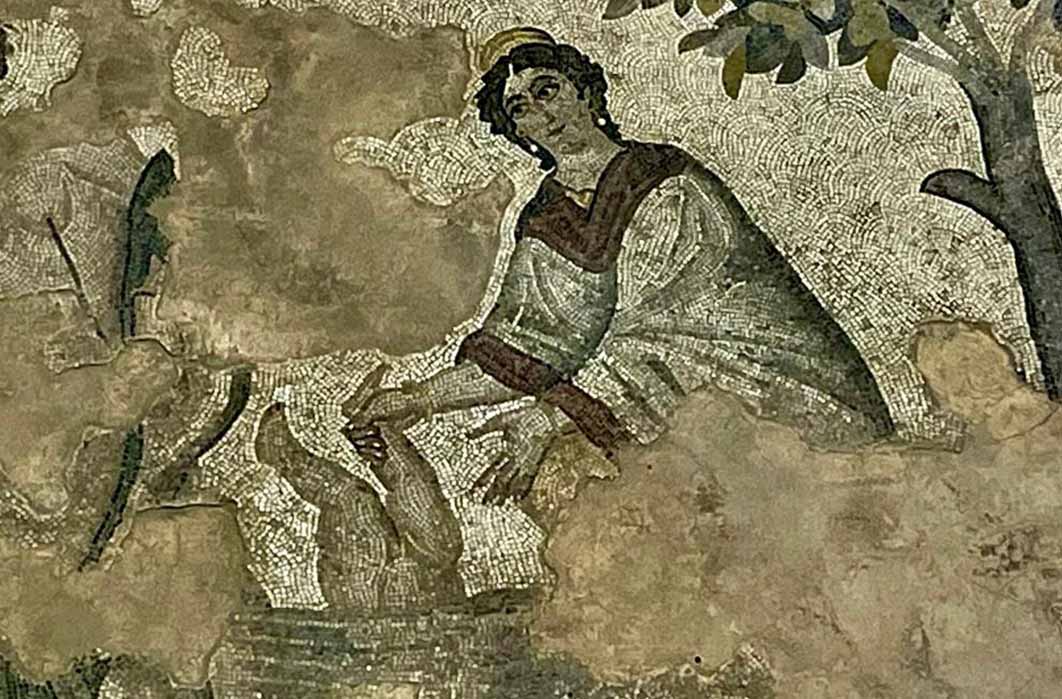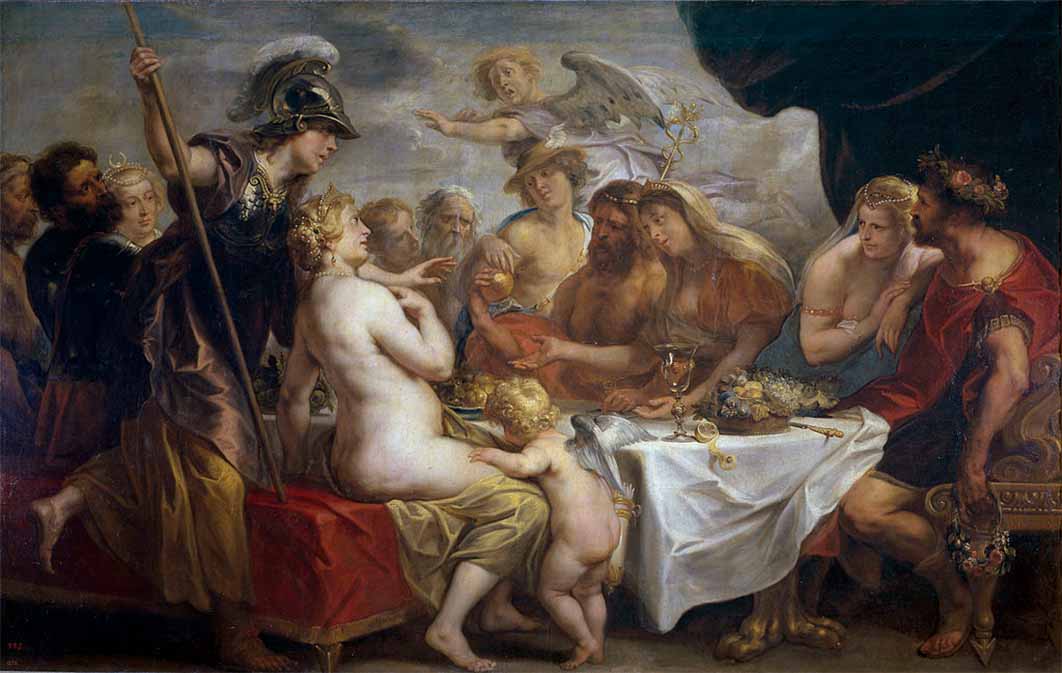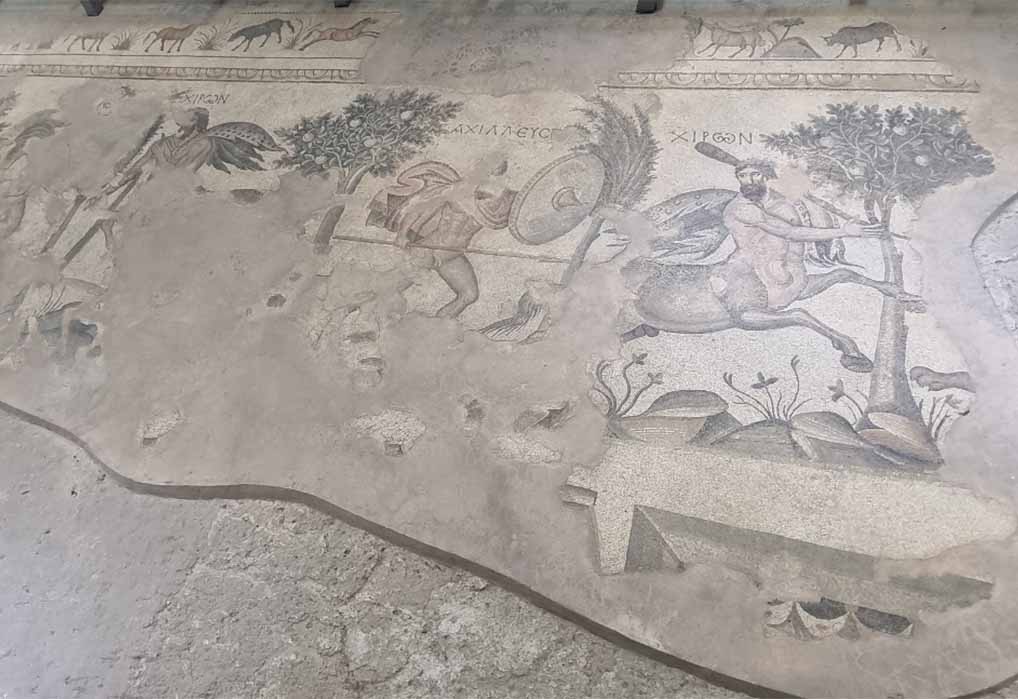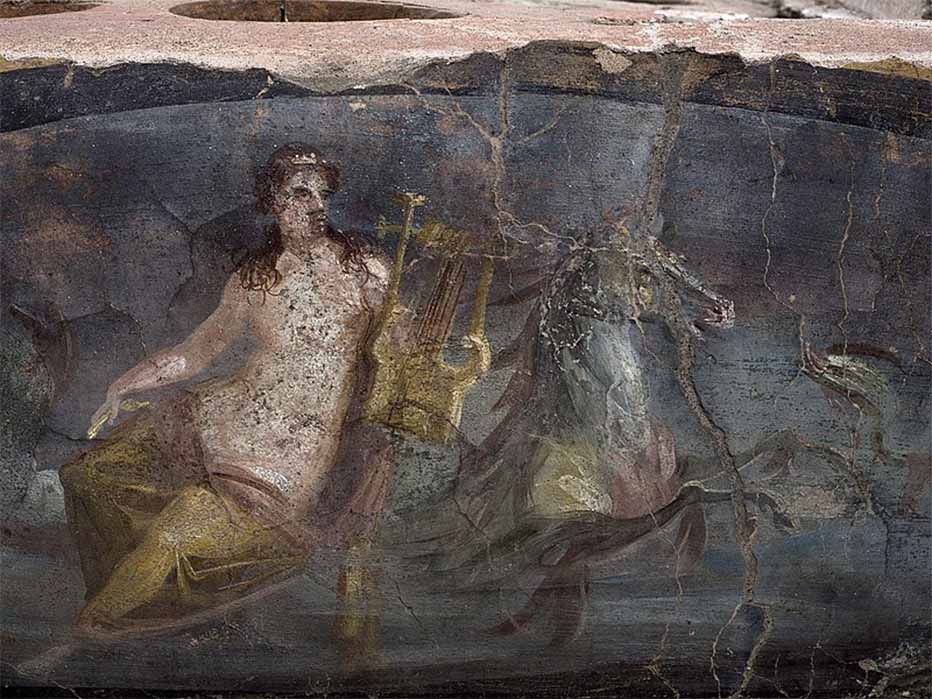
Mother and Child Reunion Of Thetis And Achilles
The Iliad can provide new insights on the role of motherhood among the ancient Greek gods, and by extension, amongst ancient mortal Greek women themselves. Very much like the lyrics of the famous Paul Simon song, Mother and Child Reunion (1972), Achilles calling out for his mother Thetis was only “a motion away” in The Iliad. Yet, the backdrop to that “strange and mournful day,” begins with the goddess Thetis’ marriage to her mortal husband Peleus, and her devotion to her demi-god son Achilles.
Nereid half reclining on the back of a seahorse, fresco from Pompeii (CC0)
Thetis the Runaway Bride
In Greek mythology, Thetis has multi persona. She is often portrayed as a sea nymph or water goddess, as well as one of the Nereids or a daughter of the sea god Nereus. Although she played a role as a sea goddess in the religious beliefs of Ancient Greece, it was her wedding to the human Greek hero Peleus, and the birth of their son Achilles that she is mostly associated with. In The Iliad, Homer alludes to her role as an enabler of the Olympian Zeus when three other Olympians, Athena, Hera, and Poseidon plotted to overthrow him. Later in The Iliad Achilles refers to Thetis saving Zeus by calling up the monster of a hundred arms, Briareus: “You alone of all the gods saved Zeus the Darkener of the Skies from an inglorious fate, when some of the other Olympians – Hera, Poseidon, and Pallas Athene – had plotted to throw him into chains ... You, goddess, went and saved him from that indignity. You quickly summoned to high Olympus the monster of the hundred arms whom the gods call Briareus, but mankind Aegaeon, a giant more powerful even than his father. He squatted by the Son of Cronos with such a show of force that the blessed gods slunk off in terror, leaving Zeus free.” (Homer, Iliad 1.396–400)
Both Zeus and Poseidon expressed their love and interest in marrying Thetis. However, both were aware of the prophecy stating that Thetis’ future son would be more powerful than his father, something both gods preferred to avoid. Zeus himself was a son who had led a successful rebellion against his father. So, they arranged for Thetis to marry a mortal, Peleus, already a great Greek tragic hero.
- Magic Armor Can’t Save the Tragic Heroes: Duty & Doom for Karna, Ferdiad & Achilles
- Gods Throwing Dice: Cleromancy In The Trojan War
- Achilles’ Shield: What’s the Meaning of the Iliad’s Most Symbolic Object?
Peleus was an Aegean prince, who had originally been banished for the accidental death of his brother, was pardoned by the King of Phthia, and married the king’s daughter Antigone. He joined Jason and the Argonauts in the search for the Golden Fleece, where he played an important role. In addition, Peleus was known as a tragic hero of the Caledonian Boar hunt where he attempted to kill the boar, but again tragedy struck when he accidentally killed his father-in-law instead. To make matters worse, although once again absolved of his crime by the King of Iolcus, (Greek monarchs had the power to pardon), when the king’s wife’s advances were spurned by Peleus, she spread the false rumor that Peleus was to marry their daughter. Upon hearing this, his wife Antigone committed suicide.

The Wedding of Peleus and Thetis by Jacob Jordaens (1633) (Public Domain)
As Peleus was a widower, Zeus decided it was time to find him a new wife and chose Thetis, the beautiful Nereid sea nymph. But Thetis wanted no part of this marriage, considering a mere mortal beneath her status as a deity. She disguised herself in numerous ways, and fled from Peleus’ advances. However, Proteus, an early prophetic sea-god or god of rivers and oceanic bodies of water, famous for his epithet ‘god of elusive sea change’, referring to the constantly changing nature of the sea or the liquid quality of water, came to the rescue. Proteus was an expert in changing shape and avoiding capture and he answered only to those who were capable of capturing him. Thus, he was the best equipped to advise Peleus on how to hold on to the evasive Thetis. She changed into a flame, water, a raging lioness, and a serpent, but Peleus held on to his bride. Realizing that she could not escape, Thetis relented and agreed to marry him. They were married during an elaborate feast on Mount Pelion, outside the cave of Chiron, attended by the gods. Peleus and Thetis had six sons together, but five died in infancy. The last surviving son was Achilles, and just as foretold he became far greater than his father.
Birth of Achilles the Son
When Achilles was just an infant, Thetis tried to make him immortal in the famous version by holding him by his heel and dipping him in the sacred waters of the river Styx. This “Achilles heel” became his vulnerable body part, and the cause of his eventual death in the Trojan War, when struck by a poisoned arrow shot by the Trojan prince Paris. In another version, she tried to make him immortal by covering him in ambrosia (the nectar of the gods), and holding him over a fire to burn off his mortal parts. She was discovered by a horrified Peleus, and she fled the palace in anger, leaving her son in the care of the centaur Chiron - most intelligent of the centaurs, and son of the Titan Cronus and Philyra, an Oceanid or sea nymph - who was famous for tutoring many Greek heroes. Thetis was not to see her son again until his preparation for joining the Trojan War.






